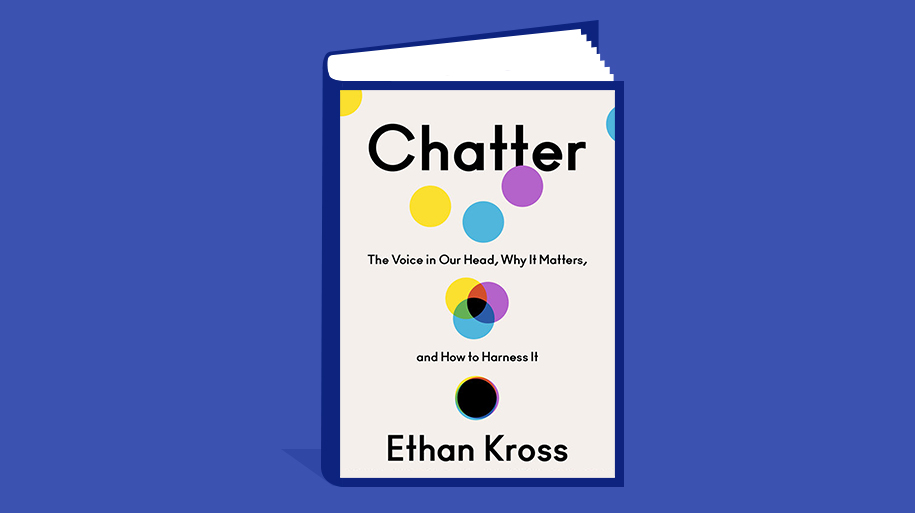

Spending time in green spaces helps replenish the brain’s limited attentional reserves, which are useful for combating chatter. A group of confidants you can turn to for support in the different areas of your life in which you are likely to find your inner voice running amok. Knowing that you are not alone in your experience can be a potent way of quelling chatter. Reframe your experience as a challenge.

Gain a distanced perspective by imagining what you would say to a friend experiencing the same problem as you. Doing so is linked with less activation in brain networks associated with rumination and leads to improved performance under stress, wiser thinking, and less negative emotion. When you’re trying to work through a difficult experience, use your name and the second person “you” to refer to yourself. To do this Kross provides ‘tools’ to help control your chatter and step back from your own mind. The challenge is to turn what could be a curse into a blessing. The inner voice is a feature of the human mind. ‘ As naturally as we breathe, we “decouple” from the here and now, our brains transporting us to past events, imagined scenarios, and other internal musings.’ Now What? It undermines your ability to ‘live in the present.’ Engaging in introspection does more harm than good. After five wild pitches in front of a capacity crowd this elite athlete was withdrawn. Kross describes how a Major League pitcher with a ‘spectacular career’ ahead of him crumbled very publicly when chatter hijacked his inner voice. Some people benefit from focusing inward to understand their feelings, while other people crumble. However, don’t listen to that voice control that voice. This voice is seen by scientists as ‘an evolutionary advance that distinguishes human beings from other species.’ So What? If you have ever rehearsed a difficult conversation beforehand, reworked a past moment to make yourself sound brilliant or ‘given yourself a good talking to’ when you’ve anticipated failure then you’ve met the voice in your head. The author Ethan Kross is an experimental psychologist who studies the science of introspection: he knows what he’s chattering about. Chatter is about the echo chamber of our own minds, the phenomenon of self-talk, its causes and consequences.


 0 kommentar(er)
0 kommentar(er)
